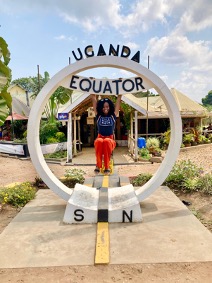Project in Uganda
 International colleague(s) and unit:
International colleague(s) and unit:
iCHAD
University of Michigan investigator(s) and unit
Massy Mutumba, Health Behavior and Biological Sciences, School of Nursing
Candidates at the Masters and PhD levels are welcome to get involved in the project.
To conduct research (quantitative and qualitative) and develop interventions to support self-management of chronic diseases among young people (aged 10 – 24) in Uganda.
Anticipated activities on project:
Trainees will participate in the interdisciplinary research collaboration that involves partnerships with faculty, staff and students at iCHAD in Uganda. Trainees will participate in research meetings, preparation of IRB applications, and data collection and analysis, and preparation of manuscripts. Graduate students will have the opportunity to utilize existing data from the study sites to write manuscripts, or develop their dissertation.
Techniques/methods students should become familiar with in advance:
Literature review, familiarity with Excel spreadsheet, and good communication skills.
Background:
The health of young people in low-income countries has been largely neglected in global public health due to the perception that this age group is healthy. However, current data indicate a large burden of both communicable and non-communicable diseases among adolescents and young adults. Globally, the leading chronic disorders among adolescents and youth are neuropsychiatric conditions (45%), unintentional injuries (12%) and infectious or parasitic diseases (10%). Sub-Saharan African countries have the highest burden of chronic diseases among young people, and this is estimated to be 2.5 times greater than in high-income countries. Adolescents account for over 40% of all new HIV infections globally, and more than two thirds of cases occurring among adolescents are in Sub-Saharan Africa. Anti-retroviral therapy has transformed HIV/AIDS from a life-threatening condition into a chronic disease. It is estimated that over 1.2 million adolescents are currently living with HIV in Sub-Saharan Africa. Globally, the main socio-cultural risk factors underlying young people's heightened vulnerability to poor health outcomes include alcohol and illicit drug use, unsafe sex, poor diet, and lack of contraception. Contrary to the general perception, there is growing evidence to suggest that young people in Africa are not as healthy as previously thought. There is clearly a need for public health interventions to promote the health and wellbeing of this population. However, opportunities for prevention of disease and injury and promotion of self-care of chronic disease for this age group have not been fully exploited. This project is aimed at identifying, evaluating and developing effective models for disease prevention and self-care of chronic disease among young people in Uganda.
Suggested literature:
- Toshiko Kaneda, Reshma Naik, and Wendy Baldwin. Noncommunicable Diseases – Risk Factors Among Young People in Africa. Population Reference Bureau. http://www.prb.org/pdf14/ncd-risk-youth-africa.pdf
- Mutumba, M., Bauermeister, J. A., Musiime, V., Byaruhanga, J., Francis, K., Snow, R. C., & Tsai, A. C. (2015). Psychosocial challenges and strategies for coping with HIV among adolescents in Uganda: a qualitative study. AIDS patient care and STDs, 29(2), 86-94.
- Mutumba, M., Mugerwa, H., Musiime, V., Gautam, A., Nakyambadde, H., Matama, C., & Stephenson, R. (2019). Perceptions of strategies and intervention approaches for HIV self-management among Ugandan adolescents: A qualitative study. Journal of the International Association of Providers of AIDS Care (JIAPAC), 18, 2325958218823246.
- Ssewamala, F. M., Han, C. K., & Neilands, T. B. (2009). Asset ownership and health and mental health functioning among AIDS-orphaned adolescents: Findings from a randomized clinical trial in rural Uganda. Social science & medicine, 69(2), 191-198.
- Kivumbi, A., Byansi, W., Ssewamala, F. M., Proscovia, N., Damulira, C., & Namatovu, P. (2019). Utilizing a family-based economic strengthening intervention to improve mental health wellbeing among female adolescent orphans in Uganda. Child and adolescent psychiatry and mental health, 13(1), 1-7.
A note about Masaka, Uganda:
Masaka is a city in the Buganda region west of Victoria Lake. Uganda has an equatorial location and tropical climate with elevations that provide an equable climate throughout the year. The wet season occurs between April and October.
A note about the host site:
To contribute to the reduction of poverty and improvement of public health outcomes for children, adolescents and families in low-resource communities, particularly those in Sub-Saharan Africa and other developing nations, through: · Innovative applied intervention research · Capacity building opportunities for a new generation of scholars · Raising public awareness and support for economic empowerment interventions · Informing public policy and programming
